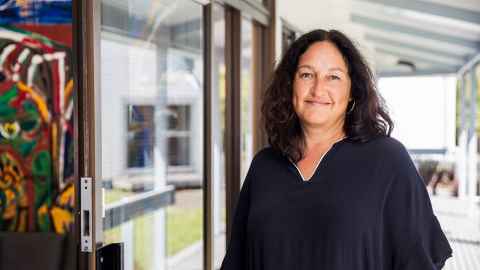Chance to make an impact for Indigenous communities
18 June 2020
A unique programme focused on positive change for Indigenous communities is calling for applicants for 2021.

The Atlantic Fellows for Social Equity (AFSE) is a one-year full time programme focused on Indigenous self-determination, leadership and capacity building. Open to New Zealand and Australian applicants, it is being offered by the University of Melbourne.
Associate Professors Melinda Webber and Te Kawehau Hoskins from the University’s Faculty of Education and Social Work are leading the Fellowship in Aotearoa.
“The programme offers participants a unique opportunity to work alongside other fellows from around the world to realise their social transformation aspirations,” says Dr Webber.
Dr Hoskins, who teaches on some of the course modules, believes it’s a great opportunity to bring a worthwhile project to fruition.
“If you have a social change project that you feel is timely and crucial, that is a bit outside the box, and that could be either a ‘blue sky’ idea, or something very concrete, like developing a resource for hapū participation in river management for example, we’d like to hear from you,” she says.
Other examples of previous Fellows’ projects include establishing a national alliance of Indigenous Australian women to lead social and environmentally responsible land-based enterprises, and leading an Indigenous Youth Leadership Development Programme for 25 to 35-year-old rangatahi Māori.
The focus of the Aotearoa-based teaching module is to better understand the ways Indigenous knowledge (ways of being and doing) offer a guide to how we might address our most pithy social problems, says Dr Hoskins.
“For the next New Zealand module we will take the participants to Waitangi and Russell and arrange site visits and workshops with Māori social developers, activists, community leaders and kaumātua (elders). Fellows and local leaders will share their social change understanding, strategies and practices within particular settings and contexts.”
The course recognises that no Indigenous community exists in a vacuum, she says.
“Transformation based on Indigenous thinking must inevitably engage with the tensions and complexities of existing institutions and legal frameworks.”
The programme offers participants a unique opportunity to work alongside other fellows from around the world to realise their social transformation aspirations.
There are already four New Zealand Fellows: Marcus Akuhata-Brown, Judith (Huti) Watson, Tania Pouwhare and Yvonne ‘Evie’ O’Brien. A former chief executive of Te Whare Wānanga o Awanuiārangi, Ms O’Brien became the programme director of the Atlantic Institute at the University of Oxford in 2018, a few months after completing her Fellowship year.
Successful applicants must commit to an intensive 12-month study period to work on their project. They receive a generous stipend and are expected to make a strong commitment to completing the course and its related modules, which involve travel between Aotearoa and Australia.
The University’s involvement with the Fellowship began in 2016 under former Vice-Chancellor Stuart McCutcheon and current Pro Vice-Chancellor (Māori) Cindy Kiro, whose initial role on the Advisory Board has now been filled by Associate Professor Melinda Webber.
The Atlantic Fellows for Social Equity is one of seven global and interconnected Atlantic Fellows programmes to which the foundation, The Atlantic Philanthropies, has committed more than US$660 million worldwide.
Established by American/Irish businessman Chuck Feeney, the co-founder of the Duty Free Shoppers Group, Atlantic Philanthropies has given away US$8 billion over the course of Mr Feeney’s lifetime, largely anonymously.
Applications open on 26 June 2020, but queries can be directed to Associate Professors Melinda Webber and Te Kawehau Hoskins on: tk.hoskins@auckland.ac.nz. or m.webber@auckland.ac.nz.
Media contact
Julianne Evans | Media adviser
Mob: 027 562 5868
Email: julianne.evans@auckland.ac.nz